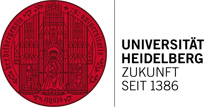Funding for CRCs and Research Training Groups
Heidelberg University succeeded in gaining support from the German Research Foundation (DFG) in the latest approval round, winning funding for two major collaborative research centres. Researchers in the natural sciences, life sciences and medicine will investigate the function of a fundamental signaling pathway in the “Mechanisms and functions of WNT signaling“ CRC (CRC 1324). The DFG also approved the Transregional CRC "Liver cancer – new mechanistic and therapeutic concepts in a solid tumour model" (CRC/TRR 209) under the auspices of the Medical Faculty Heidelberg. Total DFG funding for the two research consortia is approximately 20 million euros. Furthermore the international Research Training Group DIAMICOM (IRTG) in the field of diabetes research will continue its successful work for another four-and-a-half years with approx. 4,9 million euros for a second funding period. Ruperto Carola is also represented in a new Research Training Group (RTG) in the field of mathematical psychology, the "Statistical Modeling in Psychology" RTG, or SMiP.
CRC 1324 will focus its research on so-called Wnt proteins and their dependent molecular mechanisms, which developed quite early in the evolution of animals and also play an essential role in humans. The Collaborative Research Centre aims to unravel the mechanisms of the Wnt signaling pathway using approaches from biochemistry, biophysics, genetics and mathematics. The CRC comprises 16 subprojects and has been granted nearly 8,5 million euros in funding. Participants from Heidelberg University include researchers from the Biochemistry Center, the Centre for Organismal Studies (COS), the Institute of Applied Mathematics and the medical faculties in Heidelberg and Mannheim. Researchers from the German Cancer Research Center, the European Molecular Biology Laboratory, the Karlsruhe Institute for Technology and Göttingen University Medical Centre are also participants. Prof. Dr Thomas Holstein of the COS is the group's spokesperson. CRC 1324 will begin its work in July 2017.
On CRC/TRR 209 the team in Heidelberg will collaborate with researchers from Tübingen and Hannover. It will focus on three areas of interest. The first is the mechanisms of the chronic hepatitis C and non-alcoholic fatty liver, and their common effector, chronic inflammation. The second focus is the key progression mechanisms that shape the interaction between the liver cancer cell and its environment. Researchers in the third area will follow the so-called "bench-to-bedside" process to translate promising treatment approaches into clinical practice more quickly. Research data, tissue samples and cell and mouse models will be pooled and managed in the project and be available to all the associated researchers for further scientific experiments. Collaborators in the Transregional Collaborative Research Centre include the universities of Heidelberg and Tübingen and the Hannover Medical School. It comprises 18 subprojects and has been granted approximately 11 million euros in funding. Its spokesperson is Prof. Dr. Peter Schirmacher, Medical Director of the Institute of Pathology of the Medical Faculty Heidelberg. CRC/TRR 209 will likewise begin its work in July 2017.
The Diabetic Microvascular Complications IRTG at Mannheim offers a structured qualification programme to eight doctoral candidates in the life sciences and eight in medicine at the Medical Faculties of Heidelberg and Mannheim. The Rijksuniversiteit Groningen (The Netherlands) is a cooperation partner. In particular, the DIAMICOM Research Training Group is investigating the mechanisms in diabetes that lead to damage in the small vessels of the eyes, kidneys and nerves. The young researchers in IRTG 1874 work intensively with other research fellows at the universities of Heidelberg and Groningen. The international cooperation offers special support for the doctoral degree projects: In addition to a mentor in Mannheim or Heidelberg, the research fellows also receive support from a second mentor in Groningen. Furthermore, the young researchers are also completing a comprehensive training programme supported by the partners at the Dutch university.
The SMiP Research Training Group, which the DFG just approved for an initial funding phase of four-and-a-half years, will focus on the application of statistical models to answer questions in psychological research. The institutes of psychology of the universities of Heidelberg, Mannheim, Tübingen, Freiburg and Koblenz-Landau are cooperating in this group. Prof. Dr Andreas Voß, who heads the quantitative research methods unit at the Institute of Psychology, will represent Heidelberg in the research and training programme. The internationally oriented RTG is scheduled to launch its work in October of this year with initial positions for ten doctoral candidates, one post-doc and one scientific coordinator. The DFG is providing approx. five million euros in funding.

